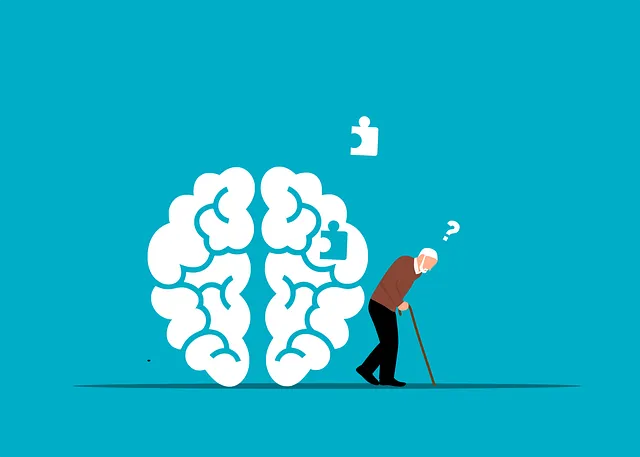Kaiser Permanente behavioral health services in Lone Tree offer evidence-based emotion regulation techniques, combining cognitive behavioral therapy (CBT), mindfulness meditation, and self-awareness exercises. These programs enhance emotional intelligence, foster resilience, improve decision-making, strengthen relationships, and boost confidence by helping individuals manage stress, anxiety, and intense feelings effectively. Through tailored mental wellness coaching and accessible resources like podcasts, they empower clients to navigate life's challenges with improved emotional well-being.
Emotion regulation is a vital skill, enabling individuals to navigate life’s challenges with resilience. This article explores effective techniques and their profound benefits, particularly through the lens of Kaiser Permanente Behavioral Health Services Lone Tree—a leading provider of mental wellness solutions. We delve into practical strategies, offering insights on how to integrate emotion regulation into daily routines, fostering improved emotional well-being. Discover proven methods to enhance self-awareness, manage intense feelings, and promote a healthier, more balanced life.
- Understanding Emotion Regulation and Its Benefits
- Kaiser Permanente Behavioral Health Services Lone Tree: An Overview
- Practical Techniques for Effective Emotion Regulation
- Integrating Emotion Regulation into Daily Life
Understanding Emotion Regulation and Its Benefits

Emotion regulation is a vital skill that enables individuals to understand and manage their feelings effectively. It involves recognizing and accepting emotions as they arise while also learning to respond to them in healthy and constructive ways. The benefits of mastering emotion regulation are far-reaching, promoting better mental health and overall well-being. By adopting techniques such as mindfulness meditation and self-awareness exercises, individuals can gain valuable insights into their emotional triggers and patterns, fostering a deeper sense of control.
Kaiser Permanente behavioral health services in Lone Tree emphasize the importance of teaching these skills to enhance resilience and cope with life’s challenges. Mind over matter principles empower people to transform their reactions from reactive to proactive, leading to improved decision-making abilities and stronger relationships. Understanding emotion regulation offers a pathway to personal growth, increased confidence, and a more fulfilling life.
Kaiser Permanente Behavioral Health Services Lone Tree: An Overview

Kaiser Permanente Behavioral Health Services Lone Tree offers a comprehensive approach to mental well-being and emotional regulation. This facility specializes in teaching effective techniques for managing and understanding emotions, empowering individuals to lead healthier lives. Their programs focus on various evidence-based practices, including self-awareness exercises designed to enhance emotional intelligence.
Through tailored interventions, the experts at Kaiser Permanente Lone Tree guide clients towards improved emotional well-being. By incorporating practical strategies such as mindfulness and cognitive behavioral techniques, they assist in mastering emotional regulation skills. These methods prove invaluable for individuals seeking to navigate life’s challenges with greater resilience and a deeper sense of calm.
Practical Techniques for Effective Emotion Regulation

At Kaiser Permanente behavioral health services Lone Tree, we offer a range of practical techniques for effective emotion regulation that can help individuals navigate their feelings in a healthy and productive manner. One powerful tool is Mindfulness Meditation, which encourages present-moment awareness and non-judgmental acceptance of emotions. By focusing on the breath and observing thoughts without reaction, individuals can learn to disengage from impulsive responses and foster a sense of calm.
Our Mental Wellness Coaching Programs are designed to support individuals in developing personalized strategies for managing emotions. Through structured guidance and ongoing practice, these programs empower folks to identify triggers, understand emotional patterns, and employ coping mechanisms tailored to their unique needs. By integrating evidence-based techniques like cognitive behavioral therapy (CBT) and stress reduction strategies, we help promote Mental Wellness and enhance overall well-being.
Integrating Emotion Regulation into Daily Life

Integrating emotion regulation into daily life is a key aspect of holistic well-being, and Kaiser Permanente behavioral health services Lone Tree offers valuable insights for individuals seeking to navigate their emotional landscape effectively. These techniques empower people to manage stress, anxiety, and other intense feelings in a healthy way, preventing them from overwhelming or hindering one’s progress. By incorporating strategies such as mindfulness, cognitive reframing, and deep breathing exercises into routines, individuals can enhance their resilience building abilities and better cope with life’s challenges.
The Mental Wellness Podcast Series Production at Kaiser Permanente has also contributed to this vital discussion, providing accessible resources for learning and practicing various emotion regulation techniques. Crisis intervention guidance is another critical component, ensuring that individuals have tools to navigate sudden emotional distress or challenging situations. Through these initiatives, Kaiser Permanente behavioral health services Lone Tree fosters a culture of mental wellness, where emotion regulation is not just taught but also actively integrated into daily lives.
Emotion regulation is a powerful tool for enhancing overall well-being, and integrating these techniques into daily life can significantly improve mental health. As demonstrated by Kaiser Permanente Behavioral Health Services in Lone Tree, teaching practical strategies allows individuals to navigate emotional challenges effectively. By understanding the benefits of emotion regulation, one can embrace a more balanced and resilient approach to life’s ups and downs, fostering better mental health outcomes.






